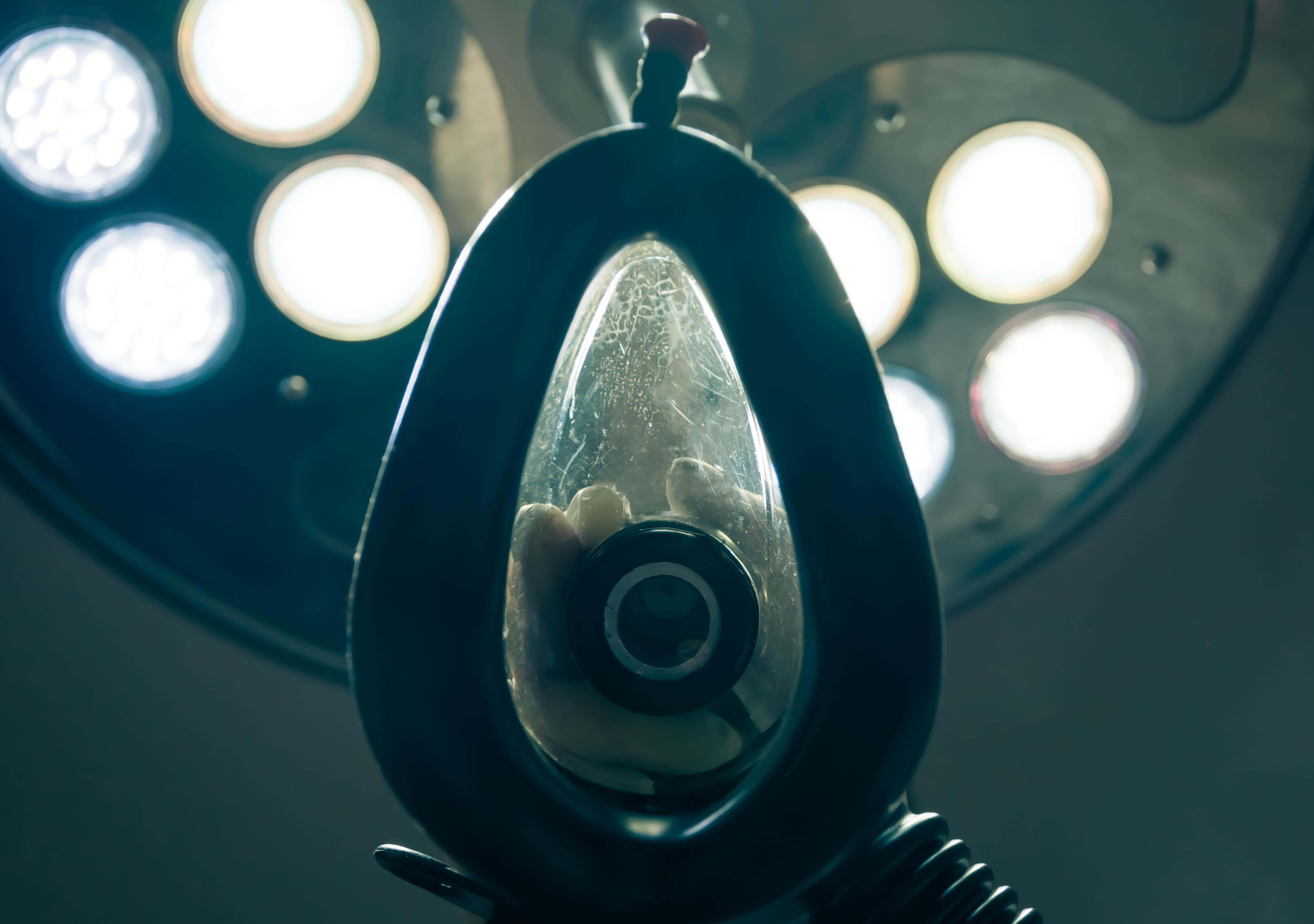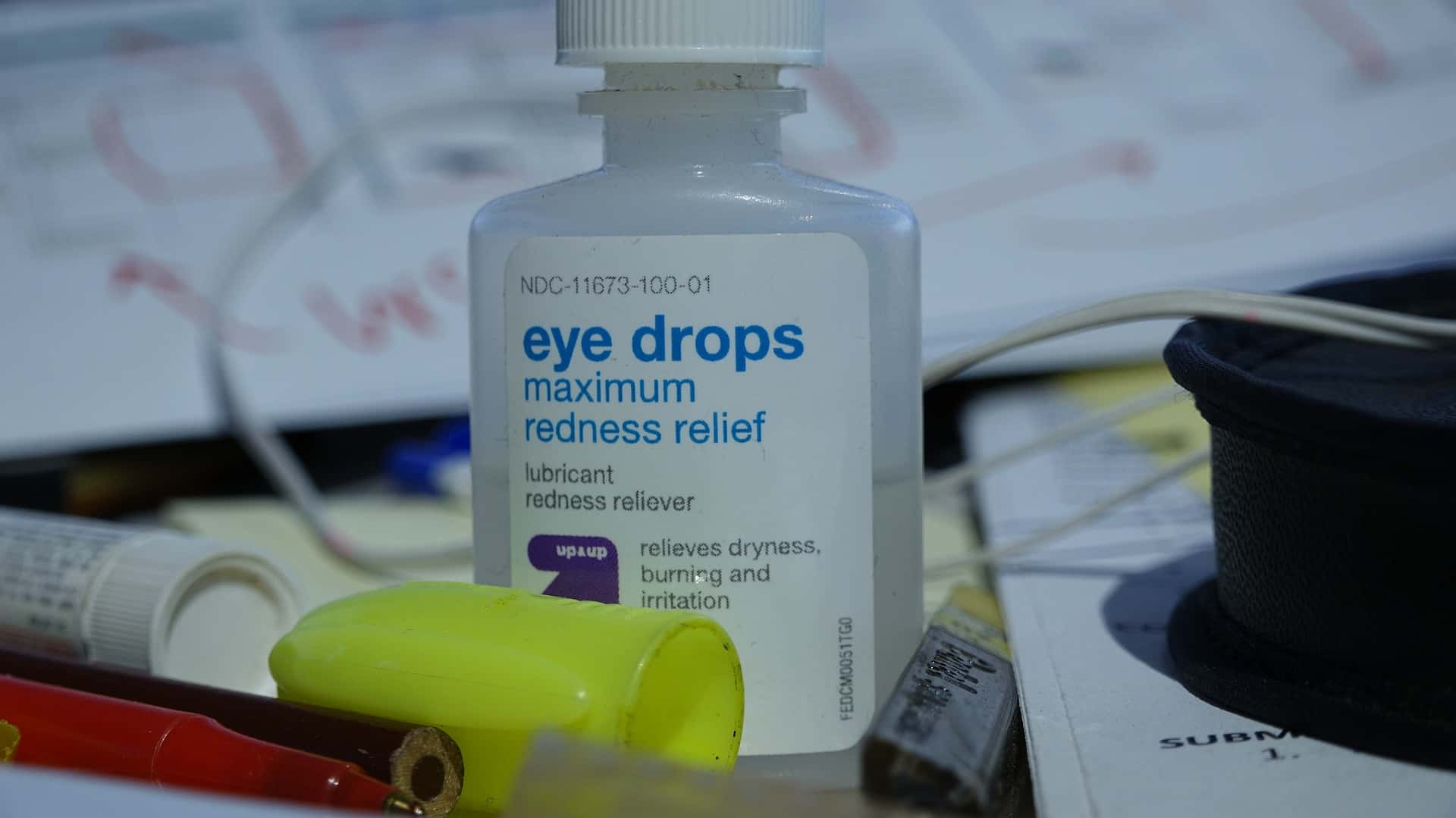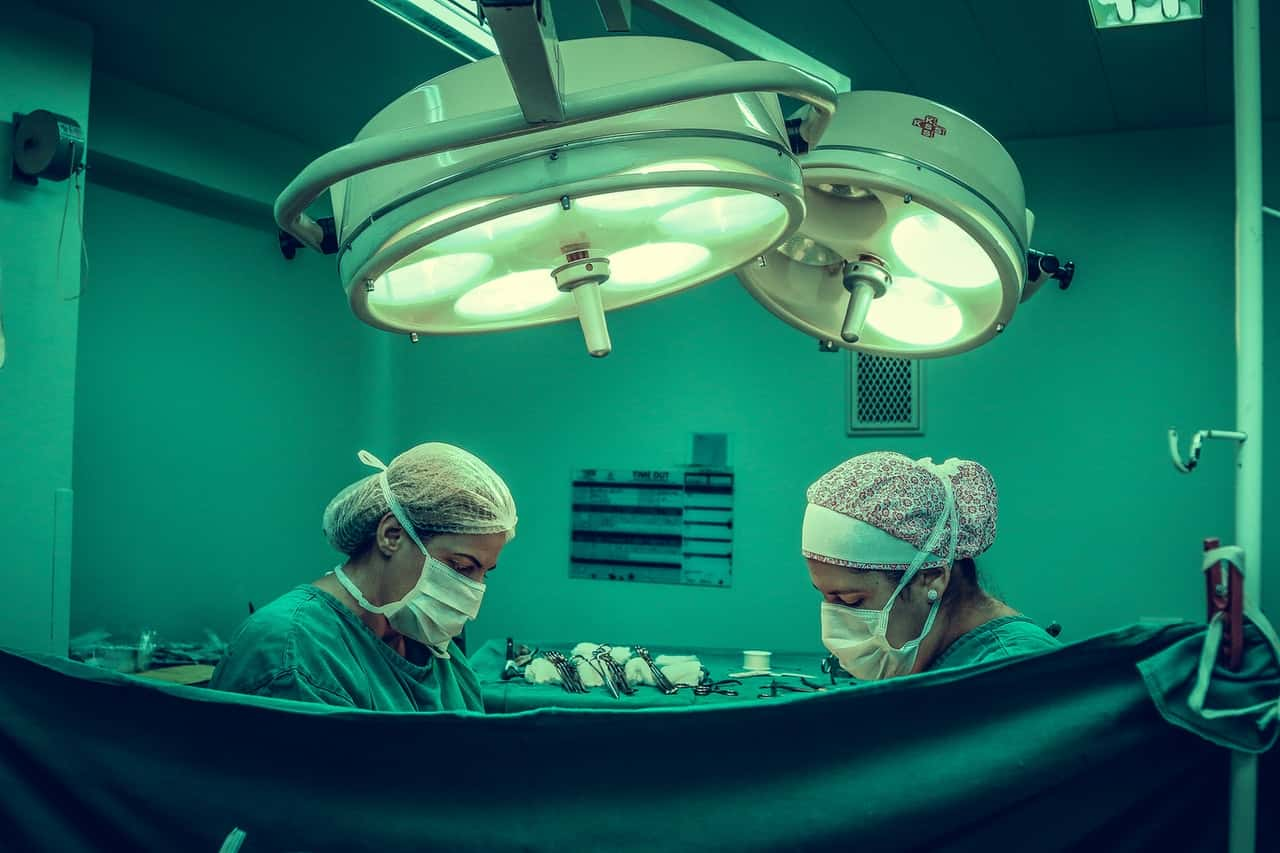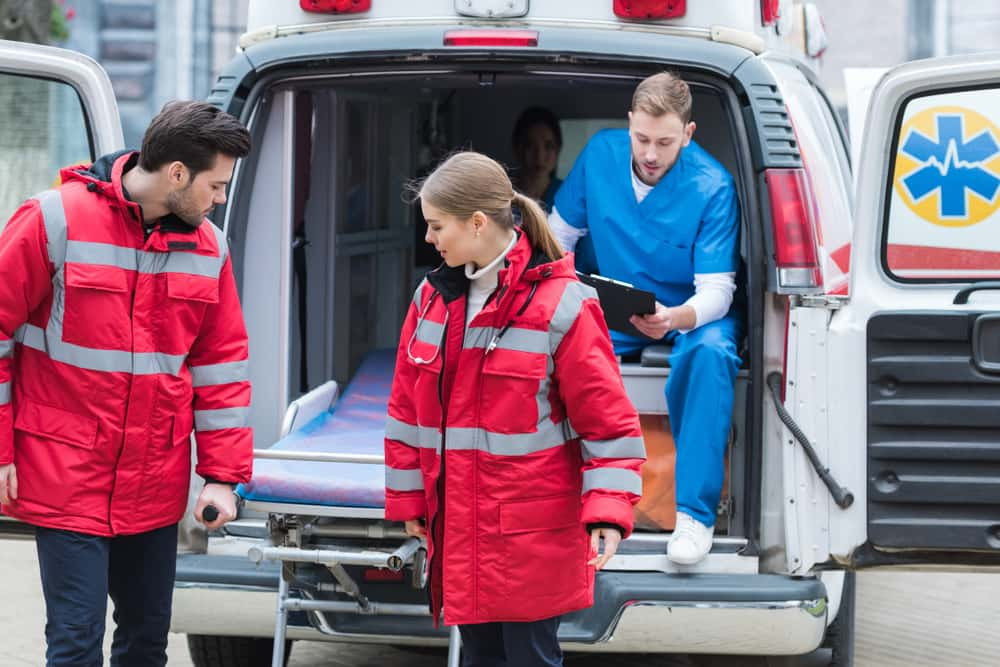After studying for years to get a medical degree, these professionals did not see these symptoms or patients coming. Honestly, we might need to check our pulses after these surgeon stories. We can’t imagine working through these scenarios, staying calm, and saving lives. What’s the medical term for shocked into silence? Code it back and don’t forget to thank your first responder friends after reading these jaw-dropping experiences.
1. A Telenovela Evening
One night while I was working in the Emergency room, a patient arrived with complaints of spotting. She told us she had been bleeding for two days and had a little pain. She thought it had started after her female partner had been “a little rough” during their last intimate experience. Her examination revealed something else entirely.
There was a complete tear through the posterior vaginal wall into the colon, and these injuries were consistent with a difficult childbirth. The story wasn’t adding up, so I ordered more tests, including a urine pregnancy test. The pregnancy test came back positive, which opened a huge can of worms, given her relationship status.
Turns out, she had secretly delivered a baby two days ago but didn’t tell anyone. She had been hiding the baby from her family and girlfriend. Everyone from child protective services to pediatrics got involved in the case. They found the baby in her apartment under some towels and it was a doozy of a night for paperwork. Her parents adopted the infant and as far as I know, they are still the child’s guardians.
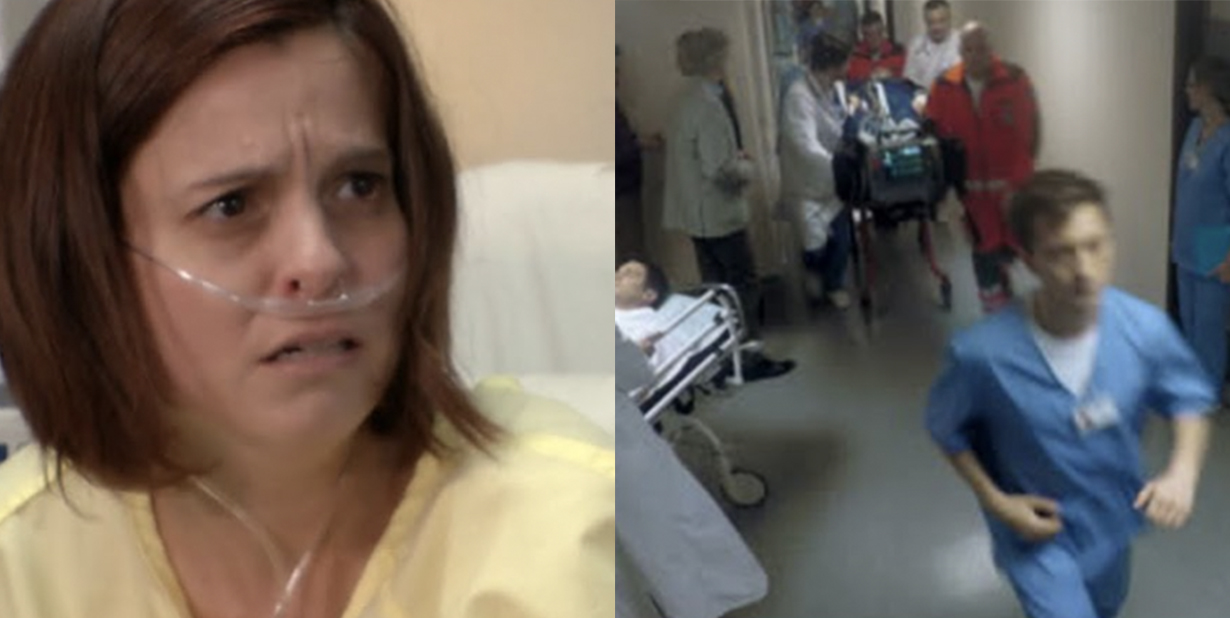
2. Puff-Puff-Pass-Out
I once had a middle-aged female patient, with no prior medical history, who was flown in from another state for escalation of care. She was transferred for intracranial hemorrhage. But one thing made her case stand out. According to her family, it had happened after she tried puffing the green stuff for the first time. She had taken a big, long toke and she coughed so hard that it ruptured a vessel in her brain.
She survived her surgery, but during her post-op recovery her heart stopped and she went into a cardiac episode. I attended the code blue with the team, and with rapid sequence intubation and CPR, we were able to bring her back. After she was stable I was outside the room reviewing my patient list when she went into a cardiac episode a second time!
The same team had to sprint across the hospital again to handle it. I've never seen the code blue team so out of breath. In one night she was flown in, had a ruptured aneurysm, hemorrhagic stroke, and two cardiac episodes back to back and lived. She was a fighter but I hope her family understands no means no next time!
3. Don’t Skip The Important Stuff
When I was an anesthesia resident, a pregnant woman came into our medium-sized community hospital in the night with some abdominal pain and nausea. Her doctor determined she was not in labor so we just treated her with medication and kept her overnight. In the morning, a new obstetrician started daily rounds. When he saw her, he immediately raised the alarm.
The new obstetrician noted that the patient's blood pressure had dropped. They felt the patient's uterus and it was exquisitely tender. At this point, our patient is feeling very faint. Now the diagnosis is likely a uterine rupture, which is when a small hole has burst in the womb. In these cases, the solution is an emergency C section, and my team was called in to perform this delivery.
A uterine rupture is bad enough, but when we removed the tiny preterm baby, we discovered a horrific truth. It wasn't a rupture but a placenta percreta. That's when the placenta grows through the wall of the uterus and into the surrounding organs, in our patient’s case her bladder. The surgery became more complicated and we had to call for help.
In the OR we now had a urologist, and two other anesthesiologists and started a blood transfusion as she had lost a lot of blood. This condition is usually detected on a prenatal ultrasound, but the patient had skipped hers. If she hadn’t missed it, this surgery would have been performed in a big city due to its risky and delicate nature. Thankfully, mom and baby were OK.
4. Dignity Discourse
A young woman in her 20s comes in with an infected heart. Her infection and heart failure are pretty much past the point of recovery. Her only option was IV antibiotics, hope they work, and plan for hospice care. Her IV lowered the infection but the heart and valve damage were extensive. It was so extreme that the heart was producing micro-clots.
After the micro-clots, her fingertips went purple and clots migrated to her lungs. When she arrived in my ICU ward she was struggling to breathe. At this point, she decides to fill out a DNR or Do Not Resuscitate and move into hospice care. Unfortunately, our state has a loophole where if the patient becomes unresponsive their proxy can change the DNR. Sadly, the worst happened.
Her mom went to court and was granted healthcare proxy rights. This meant once the daughter was disoriented, her medical decisions belonged to her mother. The first thing her mom did was cancel the DNR, and our team was forced to put her on life support. This lasted for months and her arms and legs became purple, black, green, then necrotic.
Her organs were failing and the clots had traveled to her brain. She was unresponsive and we knew it shouldn’t be prolonged. We took the case to risk management, we held ethics meetings, and we went to court against the mother to revoke her healthcare proxy to fight for the patient's right to pass with dignity. The court refused and mom stayed in control.
5. In The Blink Of An Eye
This patient had a history of kidney cancer but was in remission. On his latest scan, there was surprising news. There's a focal mass on one kidney. Still, if it’s actually just a focal lesion we can chop off the tip of his kidney and cure him while retaining most of his kidney function. The lead surgeon requests better imaging, so we send him to radiology.
When radiology calls us back with the results and it was the worst possible outcome. The cancer is back and has spread into the renal veins. This takes our patient out of remission and into stage three. The radiologist also mentions he sees shadows in the liver and brain. After the dust settles, everyone agrees that this patient is more advanced and surgery is no longer an option.
The worst part was telling him. Remember, this patient came in thinking he was having a short surgery and leaving completely cured. Instead,the surgeon walks in and says, “I’m sorry, but your cancer has spread and you most likely have about six months to live.” His son was five years younger than me and standing next to his dad at the time.
6. Up In Smoke
My patient was a teenage girl who was taking a nap at home. As she slept, a reckless driver crashed into her house, causing an electrical fire, igniting a ruptured gas line, and setting the entire house ablaze. Originally she got out with her sister, but went back in to try and rescue her dad and dogs. When firefighters pulled her out, her body was 95% burns.
When she arrived in ICU we registered smoke inhalation, lung damage, carbon monoxide, and cyanide related illness plus fatal inhalation. She survives the initial presentation to the t-unit and now she’s in our burn unit, and it’s only going to get worse before it gets better. The only intact skin on her body was a small area around her inner thigh.
Her hair, face, eyelids, and lips are gone. We do what we can with moist sterile dressings and debridement plus broad-spectrum antibiotics. At the end of the day, she looked like a mummy fully wrapped by the end. There is no chance of her having a normal life ever again. The chances of her surviving are in the single digits. After a few days, the infection begins to set in.
All that damaged tissue was a breeding ground and the first thing we noticed was the smell. The only thing you can really do to encourage healing at that point is IV/Topical antibiotics and debridement. Basically, large wounds heal better when they are scraped or shaved to expose the wound bed. This removes cells which hamper growth and encourages new skin formation.
It takes weeks of treatments, and we had to do this all over her body. This was scheduled multiple times per week. One day, I said out loud in the OR, “This is the worst thing I’ve ever seen in my life.” Several years in medicine later that statement remains true. She survived the next few days, and we started with the skin grafts. Trying to re-build her face, and cover her body.
Her average surgery time was about 10 hours per procedure. We have to keep the room at 98 degrees because burn patients go hypothermic quickly. This meant 10 hours in full scrub gear at nearly 100-degree heat.
7. Evil From Within
One time, we had a woman come in through the ER with excessive bleeding three weeks after childbirth. That's fairly unusual timing and I took her to surgery for a dilation and curettage, or D&C. I expected to find a little retained placenta and that the bleeding would improve as soon as I got it out. This couldn’t be further from the truth.
As soon as she was on the table, it only got worse. We eventually performed a uterine tamponade balloon. This is a big balloon you fill with saline inside the uterus to apply constant pressure. With medication, we finally got the bleeding stopped and she did ok after a blood transfusion. In total, she lost 1,000cc in the ER plus another 2,000cc in surgery.
Her lab results never showed any retained placenta, meaning her uterus just tried to end her life her that night. It’s incredibly rare and I’ve never seen this since. She took the time to send me a thank you card a few weeks later with a handwritten note in it: "Thanks for saving my life, I guess." I kept it in my locker for a while and wish her a happy uterus future!
8. Without A Leg To Stand On
I was a resident in the ICU and we had a patient recovering from Steven-Johnson Syndrome, which is a rare drug reaction where skin blisters uncontrollably. At the same time, he had a clotted femoral pseudo-aneurysm that was at risk of bursting and bleeding. Between the afternoon and evening rounds, this patient’s nurse asked me to assess his leg swelling.
His whole body was swollen because of all the blisters and he had fluids he'd been getting for his blood pressure. When I checked his right leg, it did look more swollen than a few hours ago and the skin was worse. However, the aneurysm was stable on the ultrasound earlier in the day so it didn't seem like there was much to do other than keep it well dressed and monitored.
A couple of hours later, my co-resident and I are doing our evening rounds as the general surgery team is assessing a few doors down. The leg looks even worse than earlier and is another few centimeters swollen. Even with the swelling, his vitals are stable and he’s receiving the right treatment. We were scratching our heads when his leg burst.
Where the swelling had occurred has now split open and is gushing. The nurse and my co-resident throw on gloves and apply pressure while I grab a surgical kit and try to find the source. Our team is running down the hall to grab the surgeons who are still evaluating patients. Within two minutes, there's a small team searching through this man’s leg, looking for the cause.
Another minute or two later and they've found they found the ruptured vein. They stopped the bleeding as best they can. I think on the repeat blood work that evening he'd lost maybe 10-20% of his blood in five minutes. Now we had to treat the infection. This patient was pretty frail and had already had a near-fatal reaction to one class of antibiotics.
I wish I could say it was a happy ending, but his wound became purulent and he developed bacteria in his blood. It was a bad day that got worse with all the other medical problems he was having. It was just too much and we transferred to palliative. I’ll never forget the experience and know my team kept him as comfortable as possible.
9. Just Bumming Around
Our patient had a pilonidal cyst that bothered them for years. This is the type of cyst that can be very large at the cleft of your backside, and is caused by hairs that burrow deep under the skin. It flared up while the patient was sitting for long periods, and became inflamed and infected. Normally we would recommend a surgeon for this procedure.
When we examined the cyst, we could see it had opened on its own and was beginning to drain. When I took a closer look, I could see the nest of hair in this opening and my curiosity and an absolute need to remove it took hold. But I had made a fatal error. I didn’t predict the nest acting like a plug, and the removal released the most foul-smelling pus.
Thankfully due to protocol, I was wearing a face shield but it did land on the bridge of my nose and eyebrow. I will never forget the sheer force, trajectory, or smell, but would do it all again if I had the chance. Chalk up my fascination to too many episodes of Dr. Pimple Popper. Even so, I still wasn’t prepared for the results.
Sign Up For Our Newsletter
Stories that matter — delivered straight to your inbox.
10. I Hope This Isn’t Personal
I have Crohn's disease and spent the majority of 2012-2015 going in and out of hospitals due to malnutrition, anemia due to blood loss, an inflamed colon, infections, etc. No medications helped calm my disease down. As a bonus, I got something called Pyoderma Gangrenosum two months after I was diagnosed with Crohn's.
Pyoderma Gangrenosum gave me several open wounds on my legs that were painful and required wound cleaning twice a week with high doses of pain medication. Due to building a resistance, I went from 5mg to 20mg over the course of a year and a half. My daily prescription was valium 5mg and morphine 10mg five times daily to manage the pain.
Under one of my many hospitalizations, I was sent to a bigger hospital than my local one, since they had better resources, equipment, and a special ward for people with gestational issues like mine. A couple of weeks into my stay, I got into big trouble. My stomach was hurting a lot more than usual. I also stopped making bowel movements, which was a big red flag.
I was still going to the bathroom like 50 times a day to pass blood and minuscule amounts of waste, but then stopped overnight. I informed the nurses and spoke to the doctors when they had visitation, but I was getting brushed off by everyone. I asked to be checked out, showing my stomach, which by now looked like a six-month pregnancy.
Regardless, doctors did nothing more than feel my tender stomach daily. I started crying a lot, could hardly sleep, and stopped eating the first or second day because of the pain. Eventually, I was vomiting and overall deteriorating. After six days, I had enough, and finally, someone wheeled in an ultrasound machine to my room.
After a quick look in my stomach, I got a meek, "Oh, your intestines are twisted around on themselves, you need surgery." The next morning I was on the operating table and ended up having my whole large intestine removed because of the extent of damage from the twisting and inflammation. I now have a permanent stoma to function.
The reason they did nothing for a week despite my daily complaints was the doctors thought I was addicted to my pain relief medications. They thought I was complaining for more medication...even though I never asked. The doctor responsible had never interacted with me face-to-face and made the decision based on my medical history alone.
11. The Circle Of Life
My brother is a paramedic, and he said every time, practically without fail, dispatch would downplay the calls. So one call he had was for a girl "with minor bleeding." He arrived and found her 14-year-old brother frantic. His 12-year-old sister was bleeding everywhere and wouldn't stop. My brother braced for a major cut and expected a blood bath.
Instead, the girl was terrified she was a goner....because of all this blood coming from between her legs. So yeah, that became quite clear quite quickly. She was in the bathtub and he calmed her down and asked them both where their mother was. They called the mom at work and she got on the phone to explain to her daughter what was happening.
When she was passed back to my brother, she asked if ambulances had sanitary pads, but they don’t carry them. He did however use gauze to make a temporary pad and explained to the girl what to do. The mom ran into the house 20 minutes later, thanked my brother profusely, and hugged her daughter for a long time. He never expected to teach someone about the menstrual cycle.
12. The Digit Details
We had a patient call our clinic and say they cut their hand. They wanted to know if we were busy or had time for a couple of stitches. They failed to mention that they were working with a table saw, and had nearly cut off three fingers. Their tendons were exposed and severed, and I sent him immediately to the hospital. He received a hand specialist and kept his digits.
13. Ride-Along-Astray
As an EMT trainee, in my first ride-along we responded to a call where a guy fell at a skate park. When we got there he was conscious, walking, and talking coherently. He hadn’t been wearing a helmet when he fell and a bruise was forming above his eye. With no scrapes and his pupils dilating, we assumed it was a concussion and black eye.
We talked him into coming with us to the ER just to double-check. We get him in the ambulance, lay him down, and his blood pressure had gone down significantly since our first check. Then it took a very dark turn. It escalated quickly to him getting drowsy and throwing up blood. We turned on the sirens and started fluids, but his blood pressure kept dropping.
He was unconscious by the time we got to the ER. Skipping the bruise meant we hadn’t felt the soft skin filling with blood and the crushed bone around his eye and cheek. He ended up having emergency brain surgery. Coincidentally, they also found and removed a tumor while operating. He recovered to skate another day, and hopefully will remember his helmet.
14. No Laughing Matter
One night I had a young guy; a walk-in who thought it was hilarious he had a stab wound. He arrived at 3:00 am and had been waiting hours before deciding to get help. He also brought in his family and friends who also didn’t think it was a serious injury. During his evaluation, it registered as a level one and his blood pressure was low.
His heart rate was soaring as his body tried to compensate for the loss of blood. As soon as we brought him into a room, he coded and never woke up. We tried to revive him with a manual cardiac massage, which meant cracking his chest and manually pumping the heart. The blade had nicked his abdominal aorta, which ruptured. But that wasn't the most chilling part.
When we went back to the waiting room, his friends and family were having a pizza party, not recognizing the fatal status of their loved one.
15. Fancy Seeing You Here
My patient came in with a badly infected foot abscess. Like, the entire foot was showing signs of cellulitis and we had to put her on antibiotics for a few days of inpatient care. She was paying out of pocket and kept trying to leave, but we insisted she finish the treatment. When the infection was mostly cleared she was discharged.
She had strict instructions to change the bandages, monitor the wound, keep it clean, and also had a list of prescriptions. We also scheduled appointments at a wound clinic to monitor the abscess. She did none of those things. She never even picked up the antibiotics from the pharmacy. She skipped her wound clinic appointments and was unreachable.
We later found out this was because she went on vacation. Several days after getting home, she decided to go on a two-week-long camping and river rafting trip with some friends. Her camping trip was cut short after the first week because she developed septicemia and her friends drove her to a local hospital to get airlifted back to our hospital.
16. The Girl On The Grill
The year I was a medical intern I had a 34-year-old woman for a patient. She was manning a grill for two days during a weekend festival for her church. During the festival, her eyes got irritated from the smoke off the grill so she asked a friend for eye drops. After using them for two days, she developed a rash. The rash rapidly progressed to cover her whole body.
It then developed into a syndrome, which essentially was when the most superficial layer of the skin separates from the deeper layers. This leaves a wound that is similar to the raw spot underneath a big blister. In her case, it involved three-quarters of her body. Her body was also fighting off infection in her mouth, esophagus, stomach, and intestines.
We had silver-impregnated dressings that we had to wrap her in like a mummy and change every day. Despite everything we could do at the main burn unit in a huge metro hospital, her body couldn’t continue to fight. Her friend was racked with guilt. All over some eye drops.
17. Till Burns Tear Us Apart
I had a husband and wife brought in at the same time, both with major flame burns. He was about half his body surface area, and she was 75% or more. The woman was intubated at the original emergency room they went to. She was waking up a bit when she got to our unit and kept trying to mouth something around her breathing tube.
In hindsight, I'm pretty sure it was "my baby," as she miscarried about 36 hours after she was admitted. She developed an arrhythmia while we were starting a new IV and we couldn't control it. Then we found out what really happened. We found out the husband lit her on fire when he discovered he wasn’t the baby’s father. He survived and after medical treatment moved to a penitentiary.
18. Where’s The Horsehoe?
When I was a medical student on my surgery rotation, I was working a shift with the t-unit team. I'm observing a simple repair surgery when my pager goes off. I run into the t-bay and a young gentleman is brought in on a stretcher with the lower half of his body covered in blood, but he's awake and coherent.
He's screaming and had been hit 15 times, all below the belt, and one had gone straight through his scrotum. We're doing an evaluation when a code is called in the next pod over. Turns out it’s the patient who was brought in with our current patient. Several of us run from patient one and into the next pod to see a woman lying on a stretcher receiving CPR.
We roll the patient on her side to get her clothes off and notice she's bleeding out of her back. There is a tiny exit wound and we piece together it’s a ricochet from our previous patient. We take her to the t-unit to perform the primary surgery. She's not breathing and has no pulse. We intubate and find the entry point in the center of her chest.
Ultrasound confirms a hemothorax and we get a chest tube in place. Instantly there are two liters of blood gushing onto the floor. The resident I'm with immediately takes a scalpel and makes an incision, then they clip the sternum in half. This woman’s chest is now completely open and we can see the heart, and the clean entry and exit wound.
All of the blood and fluids we were pushing was just draining right out of her heart and into her chest. We’re running her to an OR, when I notice she’s bleeding from every single opening in her body. Her body had used all its clotting agents. The blood still flows but she can’t go for surgery under this duress. We transfer her to intensive care and monitor her for three weeks.
She can't talk or move, and the family is having conversations about life support. I find out she was discharged as a quadriplegic and the future is bleak. The real twist happens six months later. I was working a shift in intensive care and bring up this patient to my attending. They remember the night and working on the body and proceed to tell me that a month ago at a follow-up visit, this patient walked in. After the harrowing experience, all she has is a scar from her thoracotomy.
19. Going Great Lengths To Stay Hip
Our elderly patient went into a cardiac episode but was revived. We did all the possible tests but couldn’t find the reason. Just as she was getting better, her heart attack came back for a sequel. We did CPR and were able to get her pulse back, and closely monitored her that night. Things were not looking good so we called her husband.
We asked him to come in as we were worried she would not survive the day. Her husband told us he would be there within the hour. Well, three hours passed and he didn’t show up. We tried calling and couldn’t reach him. Eventually, a nurse found out that he was downstairs in our ER! Apparently, when he left his house in a hurry, he fell and broke his hip.
20. A Medical Mystery
A patient mystery I never understood was a healthy 23-year-old male. He came into the ER with chest pain that started after eating something spicy. We check his vitals, do an X-ray, and are about to discharge him when he collapses lifeless. We start CPR and get a pulse. He was stable for a CT scan but doesn’t survive the procedure.
The team was baffled. During the autopsy, it was revealed his major blood vessels basically just imploded. This sometimes, though rarely, happens to men in their 70s with a long history and high blood pressure, but this patient had zero risk factors and was a non-smoker. This was a few years ago but the case still bothers me.
21. Fix One Problem, Find Another
My sister was having stomach surgery and the surgeon mentioned that her uterus looked strange. The surgeon thought there might be an ovarian cyst and recommended getting checked. After she recovers from the stomach surgery, she checks out the uterus, and she finds out she has uterine leiomyosarcoma. In other words, her entire uterus was just one big tumor.
The tumor also impacted her ovaries and her fallopian tubes. She had another surgery where they got it all out and then she went through chemo for five months. After six months of clean scans, she goes to get a mammogram and finds cancer. She chose to have a mastectomy last week and she starts radiation soon. It’s the worst treasure hunt ever.
22. A Clot Unlike Any Other
My father went to the hospital with chest pains, and they decided to do an angiogram. The process injects dye into his valves to look for clots. During his procedure, the surgeon asks if he suffers from blackouts, and a few more doctors get called in to have a look. My dad is the strong silent type but admits to minimal daily pain.
They take him to another type of X-ray machine and again are looking in bemusement without explaining anything. Turns out there was a blood clot the size of a golf ball floating free in his heart. It normally should have ended someone quickly and the doctors were all intrigued. He had a triple bypass 30 years ago and is still the strong and silent type.
23. A Mumbling Clue
When I was a fourth-year resident, my first rotation in the hospital was in radiology. I was waiting with a patient after an ultrasound and they told me they were thirsty. They take a sip of water but then start mumbling. It was incoherent to us but his daughter said he had spoken like that before. She said something felt off. She was all too right.
One second he was fine, and moments later he’s just quietly staring off into space and I start to wonder what’s going on. We check him and one of my seniors calls our resident and immediately starts CPR. He was wheeled down to the ER but we lost him later that day. Since then I’ve had many patients but this memory still makes me feel weird.
24. A Tickle In The Throat
In my first year as a nurse working in oncology, we had this cute old man who had esophageal cancer. He had a golf ball-sized mass in his throat, and he had gone through radiation treatment but his doctor decided he needed a tracheotomy. Just in case you don't know, this procedure cuts a hole near your Adam's apple to form an airway.
His procedure never healed properly and the patient was constantly in pain at the surgical site with excessive ooze and liquid, I’m talking cups every hour or two. This wasn’t normal but it wasn’t impacting his airway, which was the most important thing. We continued to monitor the patient carefully through his radiation treatment.
We would suction out the liquid every night but one night, the suction started pumping out blood. I’m trying to stay calm and thought he’d gotten scraped when they changed the inner cannula of the trach recently, but then it got worse and worse. All of a sudden, he coughs, and his bleeding trach turns into a literal faucet of blood.
My suctioning can’t keep up with the blood flow and it starts to flow into his throat, and is choking him. I’m yelling for help as blood is pouring down his chest and all over my arms. Eventually, with CPR he was unresponsive and we couldn’t get a pulse. In the end, we presume the trach had been irritating the wall of his throat, and the radiation was making it worse.
25. Twice The Fun
My mom is 4’11”, so when she was pregnant with twins, she was almost wider than she was tall. They had her on bed rest in the hospital because they knew we’d be early. She had gestational diabetes and hadn’t had sugar in months. My loving, caring father was by her side the whole time and had also cut out sugar to support her.
On this specific day, however, he was sneaking a chocolate shake, and my poor mom became really emotional and asked for one sip. Immediately as she took the sip, her water broke. Of course, it was unrelated to the chocolate shake, but my mom was beside herself, thinking she messed up and caused early labor by drinking a chocolate shake. Oh, and there was one more thing.
After a successful delivery, my mom had intense pain. She couldn’t even blink her eyelids, her body was on fire. They rushed her to surgery and had to remove her whole gallbladder, which according to her was worse than childbirth. The constant optimist, my mom was just happy to stay in the hospital longer while we were in natal intensive.
26. Balance Out The Breath
I’m a patient, and I'm just remembering a wild diagnosis. I was 19 years old and started experiencing shortness of breath. It would happen if I exerted myself, like running to the bus or climbing stairs. I decided I was out of shape and made plans to start going to the gym more. That night, however, I got dizzy walking to the kitchen, and I knew it was time for help.
My parents were out of town so I asked my neighbor to drive me. I figured it would be a quick visit and felt a little embarrassed going in the first place. Turns out I had two clots in my lungs, a side effect of my birth control. Full treatment was four days in the hospital, heavy blood thinners, and a wheelchair for a few weeks. Thank God I checked.
27. All In Your Head
In 2014, my sister got rear-ended and suffered from whiplash. She began to get awful headaches, and she'd go to the doctor but they couldn’t find the cause or solution. Over the next year, the headaches got worse, and she started to have problems with her body functions. Sadly, everyone she talked to said it was just in her head and was dismissive.
At the time, she worked for UPS and got hit in the head with a box that was dropped from above, which only made things worse. She then developed problems swallowing, breathing, and began having seizures. In September of 2015, she came to my house after school one day and laid down on my couch, and then didn't get up for months except for the toilet.
One day, she managed to finally convince someone to give her a cervical MRI. At that point, the doctor called me in a panic to come in, but I wasn't able to go with her. She called me in tears later because they had finally found the cause. It turns out the whiplash had made a previously unknown Chiari Malformation symptomatic, and her brain stem had fallen out.
Yes, really. It was compressed against her spinal cord and shoved into her first cervical vertebra. The back of her brain was just hanging out of her skull. She had decompression surgery but suffered irreversible damage due to the length of time she was untreated. Turns out, it wasn't all in her head and her primary care doctor had never even heard of Chiari Malformation.
28. A Puddle Problem
I was working in the ICU one night, and it was fairly quiet. I had this older gentleman, in his 60s, admitted with hepatitis. He started complaining of pain in his stomach and chest so I gave him some morphine as he was prescribed. A short time later, I asked him how the pain was. He looked visibly uncomfortable and stated it wasn't any better.
He started moaning and pleading for help. I called the resident and got a further order for morphine. A short while later, he's calling me over and is now pale and restless, stating the pain was worse and begging me for help. I'll never forget his moaning and pleading. My nursing intuition knew something wasn't right. I turned around and walked to the phone.
I called the resident again when suddenly I become aware of a dark shadow growing and spreading under the patient’s bed. There was no mistaking this dark red puddle growing rapidly. I Interrupted the resident and said "you need to get here right now" and hung up. I ran back over to the bed and confirmed that the puddle was his blood.
Before I had the chance to say or do anything, the patient suddenly threw his head back and passed out. He went very pale and then blood spurted out of his mouth. In fact, it seemed like blood was coming out of every orifice. It was spurting, like a waterfall. I'd never seen so much blood. By the time the resident came running in the door, the patient was gone.
29. An Ax To Grind
My stepmother was a general practitioner but got to spend some time in the ER and EMT services during her studies. One night in the ER, a woman walks in...with an ax stuck in the middle of her head. Apparently, the ax had done no damage and the blade was simply embedded in her head. As it happened, her husband had taken a swing at her during an argument.
She never told me what the argument was about but she survived and made her way to the hospital. She had to drive herself with the ax's handle dangling in front of her face. It was impressive, to say the least. The good news: she divorced her husband!
30. A Rollercoaster Of Emotions
On my last day at my previous hospital, we had a patient with chest pain and low blood pressure. He'd had no symptoms prior to passing out at home. We get him hooked up on the monitor, get an electrocardiogram and an IV, and noticed his results looked funky, like he might have a heart condition. Nonetheless, his history is clear of it.
We go to the doctor, who says to run the test again in 10 minutes. The second test had different results so we run a third, which also produces different results. The cardiologist is now convinced that we had mixed up his chart with someone else's. He's sitting there with 6/10 chest pain and results that looked like they were all from different people.
Suddenly he passes out and we can’t find a pulse. We start CPR and revive him. When he wakes up he’s yelling and angry at everyone around. We're getting him prepped for a CT scan but his blood pressure is unstable. On the monitor, we see an abnormal heart rhythm, but he’s laying back and talking to us. Then we can't find a pulse.
The monitor now shows he’s in a cardiac episode but he’s still awake and answering questions coherently, even though we still couldn’t find a pulse. When he loses consciousness, we do CPR and shock him back. We decide to move ahead with the CT scan. He passes out in the machine and we are again giving him CPR. Each time we repeat this and shock him back.
We go through this a total of 19 times. I’ve still never seen someone get shocked that much since. We couldn't tell when we needed to start CPR if he wasn't talking to us, so I had to stay bedside. We eventually found out his aorta was riddled with clots. He got up to ICU and was a total nightmare of a patient. Hostile and grumpy the entire time, but somehow managed to survive and get discharged.
Everyone involved with that guy celebrated after work the day he left. The whole experience was tough and a rollercoaster for everyone that met him, since we never knew what to expect.
31. Resident Roulette
When I was in residency, we had a patient that came in for a quick visit to test their leg circulation. We run the test and there’s trouble getting a reading in his left ankle. We try again, and still no reading. We’re all checking the equipment, and one resident takes off his sock. We were shocked at what we saw. The sole of his foot was totally black.
One of the other residents squeezes his foot and their thumb sinks into the flesh. When they pull their thumb out, a cup full of grey liquid flesh starts leaking out. I think I’m going to be sick and one resident almost passes out. Thankfully, a nurse rushes over and tells us to get him to vascular. The simple test discovered necrotizing fasciitis and turned into a below-the-knee amputation that night.
32. May The Floss Be With You
I’m a dentist, and had a young patient who came in for an evaluation with complaints of tooth pain on an upper molar. We take an X-ray, and the molar has a large cavity that has reached the pulp tissue of the tooth. This is where the nerve sits, and the infection has created an abscess. The patient’s options were a root canal or pulling out the tooth.
The patient didn't show too much interest in either option and left the office with an antibiotic prescription. Flash forward to six months later, and I see the front desk has an emergency patient in my schedule. The description says the patient is in severe pain and can’t talk at all. I figure it’s another dental abscess patient with a rotten tooth.
I come into the room and realize it’s the same patient that I saw six months ago, but this time he is with his partner. The patient clearly can’t communicate, so his partner is telling me about the severe pain, plus trouble talking, eating, and breathing for the last three days. We can’t take an X-ray because he can’t open his mouth, but we try a panoramic X-ray.
Well, the same tooth from six months ago with the infection has escalated. I take a look inside and see that the floor of his mouth is raised significantly, and it's also as hard as a rock. I turn to his partner and say they need to go to the hospital ASAP. I phone an oral surgeon colleague and explain to him what I see.
The patient goes to the oral surgeon’s office before the hospital, and the surgeon calls me after the examination. It was worse than he anticipated and the patient was on the way to the hospital pronto. The patient needed to be in the hospital for five days before the successful surgery. Don’t underestimate a simple toothache.
.
33. With Friends Like These...
I’m a paramedic and a few years back, I worked for an ambulance service that included an area home to a summer nudist colony. We would be called every few days for minor falls or people with colds or flu. This call came in at 9:00 pm and said the patient at the nudist colony was fainting. We head over and are introduced to the patient.
He’s in his 80s and was visiting from Poland. He's sitting at a campfire, enjoying a few drinks with his equally unclothed friends. His wife said she called because he kept passing out after complaining of heartburn. He said he's fine and was just tired from the days’ festivities. All in all, pretty lighthearted scene, but he didn't want to go to the hospital.
I convince him to let us do an EKG before we leave and it shows that he’s having a heart attack. I run the test once more and then sit down next to him to deliver the news. The mood changes and the group is now begging him to go to the hospital. He concedes, hugs his friends, and gets in the ambulance. En route, we do our routine cardiac care.
A week later, we get called out to the nudist colony again and arrive to find we're treating the previous patient’s wife. She was now having heart problems which was luckily just a case of angina and wasn't very critical. Our patient from before is there, and said the doctor told him “the ticker is good, I just need to be careful getting excited around all of my friends."
34. First Day Jitters
This was my first day of surgery rotation while I was still in medical school. Our patient was a middle-aged woman. She was unconscious, pale, and possibly bleeding internally due to self-inflicted wounds in her abdomen. There were multiple cuts and we found out she did them after finding out about her husband’s infidelity.
We immediately went into surgery to locate the source of internal bleeding. After a few moments, we were able to stabilize her and checked every segment of her intestines for bleeding. There was one that missed a major artery by millimeters. As we were preparing to close up, my chief resident decided to take one more look. It all ended in horror.
While doing this, he accidentally caused a big artery to bleed. We had to call the chief surgeon, even though he was on vacation. He answered and was calm while telling us what to do via the phone. We were able to control the bleeding by a combination of aggressive cautery and some pressure plus suturing. The patient spoke to me a few days later as she recovered in the ICU bed.
35. Not The Face We Were Expecting
I worked in a rural area of our county and treated a self-inflicted wound to the head. Unfortunately, this happens a lot, and we have to show up to “pronounce” them unalive for law enforcement. As a paramedic, we’ll also play mini therapist for anyone who was there because that’s something that’ll mess with you no matter who you are.
Prior to showing up, though, we always park a ways away, waiting for law enforcement to enter the scene. As we’re waiting we get an update that a female witness has passed out and become a second patient. Dispatch gets a second ambulance en route and luckily they weren’t far away. Finally, dispatch calls us and says we’re cleared to enter the scene.
Our dispatch team also says law enforcement is requesting lights and sirens, which is an odd request. Normally they just ask us to proceed, but we also have to manage public perception. We assume they know something we don’t and comply with the request. The second ambulance comes from a different direction and beats us by 30 seconds.
We park right behind them and hop out. My partner checks if the second ambulance needs anything while I go assess the second patient. I see a distraught younger female sitting in the grass and she’s screaming and crying uncontrollably. I then hear my radio go off “patient one in critical condition.” I glance at the front door and see them walking and sitting on the stretcher.
I get in the back of the second ambulance and set up the equipment they’re going to need. I set up an IV line, grab a bag with intubation equipment and a medication box that has pain and sedation stocked. We load the stretchers in backward and the first patient is sitting up moving around. I thought this was a good sign—how wrong I was.
The first patient had chosen the wrong angle and they basically had no face to speak of, but they were still breathing. What I remember most was just every time someone walked by our ambulance, they just stopped functioning and stared. It didn’t make any sense that he was alive. We performed a surgical cut for him to breathe, and he was flown to another hospital.
36. One Foot Forward
When I was a paramedic, we responded to a call from a man in his late 40s who lived with his invalid mother in the middle of the country. He wanted us to check his high blood sugar levels. When we ran the numbers, they were the highest my partner or I had ever seen. We advised him to go to the hospital immediately; he was morbidly obese and wasn't taking care of his type II diabetes.
He refused our attempts to admit him and drive him to the hospital. We can’t force him into the ambulance and had no choice but to leave him. As soon as we could, we advised our medical control of the incident. The second phone call came two weeks later. With this gap in treatment, his feet now have gangrene and we can see the exposed bones of his toes.
I mean all 10 of his toes have had the soft tissue eaten away and are down to the bone. This time he wasn't the least bit hesitant, but I still can't believe he waited for it to get as bad as it did.
37. Savior Sibling
When I was a resident, we cared for a toddler admitted to the ward with a newly diagnosed tumor. Her mom had just delivered her baby sister at the adult hospital across the street three days ago. Due to nursing, baby sister is allowed to stay in big sister’s hospital room. The nurses call in the middle of the night because baby sister “doesn’t look right.”
When we arrive she is blue, poorly responsive, and breathing hard. We take the newborn to the emergency room downstairs where she is promptly intubated, resuscitated, and diagnosed with a cyanotic heart lesion. Within an hour she’s undergoing successful open-heart surgery. She owes her sister for the save since they were already in the children’s hospital when she deteriorated.
38. Rival Redemption
I was an intern in the surgery rotation. In my first week, we have a known gang member brought in by private car. No one stayed with him and he crawled into the ambulance bay for help. There were multiple GS wounds to his chest and abdomen. He was bleeding from everywhere, and he needed immediate surgery.
We needed to locate entry wounds, deal with a collapsed lung, and keep him from bleeding out. In the midst of this controlled chaos, pandemonium breaks loose. We find out an armed man has entered the hospital. We go into lockdown and believe it’s a rival gang there to finish the job. They were asking about our patient aggressively.
We start erasing the whiteboards that say the patient’s name and injuries and lock down the t-bay. We cover his face with a drape and can’t go for scans because we are stuck. We are working blind to keep him stable and also unsure of what could come through the doors at any moment. My attending was so calm and set the tone like a champ. In the end, the patient lived, but left as soon as he could stand.
39. Investigative First Response
I’m a paramedic, and we were responding to a road accident. Officers had detained the driver, and we were checking the passenger in the back of their sedan. We couldn’t see visible damage to the car; it was a fender bender at most. Our passenger, however, was disoriented and resistant to everything. All we could see was a tiny cut on the back of his head.
We struggled to get him out of the car, to check his vitals, and to use a stretcher. Every time he just closed his eyes and pushed us away. We tried asking him what happened to his head and he refused to answer. His behaviors didn’t make sense with the minimal car damage, but we knew we had to get him to the hospital. Later in my shift, I checked in with the team and got shocking news.
Turns out our patient actually had a basilar skull fracture and bilateral subdural hematomas, and we had absolutely no idea how it happened. It taught me to assume there’s a medical cause to any of my patient’s conditions, and not to overlook anything. In our roles, we can often miss the big picture, and that can cost lives.
40. A Smell That Lingers
Our patient had severe abdominal pain and we performed an exploratory laparotomy since she couldn’t sit still for a CT scan. Based on an X-ray and the rock-hard feeling of her body, we knew there was fluid building but felt blind to what was going on. When we opened the abdomen of this woman, the entire room instantly smelled like hot garbage.
The smell enveloped the room instantly, and I ran to grab the peppermint oil to rub on our masks. We saw that she was going into multiple organ failure with a ton of tissue simply turning rotten. Our lead surgeon announced this surgery was a mistake, and the patient didn't make it.
31. Exhale For An X-ray
I am an ER nurse, and we had a patient come in with what he thought was bronchitis. He was trying to calm his family down and believed he would be fine in a couple of days. His chest X-ray showed pneumonia, but he refused to believe it was anything besides bronchitis. He left the ER and went home. When he left he said he wouldn’t tell his family because we had no proof. Unfortunately, he passed on a couple of weeks later.
42. Packed Up North
I’m a nurse. One night, I received a woman after her midwife let her go through eight hours of very difficult labor. In Canada, midwives practice separately from doctors and nurses. They have an agreement with hospitals to use the beds when labor becomes high risk. At this point, our doctors take over and plan an emergency c-section.
We realize the arteries in the sides of the uterus are ruptured due to extensive pushing. We delivered the baby fine, but the mom became a separate patient. Finally, the team finishes surgery but her blood pressure immediately plummets. They realize another artery is bleeding and that they needed to clamp her aorta.
This meant her lower body wasn’t receiving blood flow for several minutes. They replaced her blood volume a minimum of three times throughout. Finally, the team stabilized her but was afraid of anything else unexpected. The safest option was to pack her but leave the would open and send her to intensive care for further surveillance.
43. Defying The Lung Odds
Our patient came into the hospital with cystic fibrosis and end-stage lung function. He had an infection and was transferred to critical care after coughing blood, but began to code. There was panic everywhere. A major artery in his lung had eroded and he was bleeding out into his airway quickly. He had no chance of living without a transplant.
They performed the transplant after 10 days of him being kept alive. After a couple of weeks, he started to respond and was taken off assisted breathing equipment. He walked out of the hospital two months later and showed no complications a year later.
44. A Hole In The Plan
I’m a surgeon, and one patient had a really bad wound. When he got to the hospital we started CPR and blood transfusions, but we had to get a steady pulse to operate. We manage to get him on the table but lose the pulse again. I’m doing CPR while another surgeon locates an injury near his groin. At this point, I’m thinking we’re going to save this kid.
I didn’t realize as I continued CPR that the blood was just leaving through his groin wound. By now he’s been down about 20 minutes, and it’s just pouring out of the artery. That was the moment I knew this had gone downhill. We pause CPR to see if we have a pulse and there’s nothing. We had to call it. I’ll never forget how quiet the room was.
45. Gone And Almost Forgotten
It was the beginning of clinical postings, and we were supposed to go interview patients for their clinical history. After that, our teacher would come and ask us to present our findings. My patient was diabetic and had ulcers in his left leg. As a rule, we are supposed to examine both limbs for comparison. Right before I asked to check, I remembered his right leg was amputated. Thank God I didn't say anything.
46. Learning On The Job
I was a fresh graduate and registered as Senior House Officer. My placement was in a community hospital 45 minutes outside of town. One night, my nurse comes and calmly tells me a new patient has arrived who had fallen out of a tree about three stories high. Both the senior doctors had already left for the day and there are multiple limb deformities.
The patient was here because it was the closest hospital, but we weren’t the best equipped. We were out of morphine and no one on the team knew protocol. I had a nurse try to call senior doctors but no one was answering. Our nearest X-ray machine was 45 minutes away. I had to make a call, so I went into take-charge mode.
I began shouting orders left and right while assessing at least an arm and leg fracture with cervical tenderness. I asked to call an ambulance for an emergency transfer but we didn’t have anything for limb braces. That's when the senior doctor runs in and made braces and collars from cardboard boxes. We got him stable and into the ambulance and out the door.
47. Hidden Gems
We had a homeless man brought in for a foot wound. We saw his foot poking out from the blanket as he's rolling by and it's a little roughed up, but doesn't seem too bad. We go in to get the details and he says he hurt his foot a few days ago and that it hurts to walk. We ask if we can take a peek, and he whips off the blanket to show us his other foot.
Moving the blanket released a horrific stench cloud, and we knew we were in for a treat. He has his foot bandaged in a very dirty wrap, his toes are completely black, and there's a maggot wiggling near the edge. We tried to remove the wrap, but it was stuck together with blood and dirt, meaning we had to cut it off. I wish I could have unseen the next part.
As we cut, more maggots began to present themselves, and the smell just kept getting more and more intense. We finally cut through and go to pull away from the wrap and at least a hundred maggots fell out. The worst part was the entire bottom of the man's foot was stuck to the wrap....and also fell away from the underlying muscle and bone.
48. Sky High
I had a patient last week who had an arteriovenous (AV) fistula for dialysis. Essentially, we create a link between the artery and vein which gives better access to the dialysis catheter. The patient kept picking at the wound and their skin ended up creating a semi-aneurysm with the wall of the fistula poking through their skin. Yeah, gross.
It looked like a little tiny blood blister, and we were trying to figure out the next steps...when suddenly it pops. The patient was sitting in bed and starts spraying so high over our heads it hit the ceiling. We barely had time to move out from under it as it fell. We begin to put pressure on the wound but had to get him in for emergency surgery.
49. Quit Playing Games With My Heart
I worked as a mountain medic at a ski resort. Most of the time, I was treating people who fell on the mountain, and I had the rare occasions of an exciting broken femur. This was exciting because it meant their pants got cut off. On an even rarer occasion, you would have other medical events, but most people on skis are fit and healthy.
Most of the non-accident stuff happened at the lodge, and since the fire station was literally across the parking lot, they would just call them first. Their jump bags were better equipped for medical. One day, however, a call came about a heart attack and the firefighters weren't in the station due to hospital transportation.
A woman in her 40s had slipped and fallen on some ice. She appeared fine, but the lodge needed to medically clear her, so they called us down from our clinic at the upper lodge. We drove down on the snowmobile and start asking questions, palpating for broken bones or dislocated joints. She seems fine, but there is a slight weakness in her left arm.
I asked her history and any other symptoms and my partner flashed me her blood pressure. It was odd. Then she mentioned she was taking Tums. I asked why and she had woken up that morning with really bad heartburn. I then insisted she come with me to a private clinic room. She’s refusing, but I finally convince her that I'm not a doctor, and just being careful.
So we pop her shirt open and quickly get the monitor on, and confirm she's having a heart attack. I have no clue how she's standing, but women tend to have less of the big early symptoms and are tough as nails. We get her airlifted to the hospital and wait for news. The air medic told us after if she had waited any longer it could have been fatal.
50. A Lady And An Officer
I work in the psychiatry registrar, and a memorable night involves a 55-year-old manic patient. She was brought in with hypothermia after she jumped into the local river during winter. She claimed the CIA was after her because she was ex-Navy. During her evaluation, she would only give me her name and rank. She said she would only give further information to an "officer."
Before I finished the assessment, she leaped out of bed and ran through the busy ER without any clothes. Our nurses tackled her while she continued screaming her name and rank over and over. We managed to sedate her and send her to the psych ward.
51. A Tuesday In Radiology
I used to work for Radiology in a small hospital. We admitted a young couple in the middle of February who had been in a car accident. The girl gets a bed in the emergency room and she's overall fine. A few cuts and scrapes but still coherent and talking. A state trooper is in her room with her. Her partner is vocally complaining but stabilized on a spine board.
She asks if she can see him, but I tell her he can’t move and needs further tests. Well, she didn't like that one bit, and she begins to freak out as I take him to Radiology for a CT scan. The scan reveals an ugly result. The guy’s spine is severed. He’s in for serious surgery and rehab, and might never walk again. All of a sudden, though, the girlfriend runs into the room.
She’s tiny but squaring up to the cop, who ends up using his taser to get her under control. She gets cuffed to a bed for good measure. At the same time, they’ve just told her partner about his outcome and he is screaming her name. Later, we found out they were running product across the border and jeopardized more than just his spine that day.
52. More Than A Stain
I’m an eye doctor, and many people don’t realize that diabetics need to have their eyes checked regularly. After all, a diabetic complication can result in blindness. I had a patient 15 years ago that was experiencing severe diabetic vascular changes against the retina and required laser intervention. On the day of her surgery, she chooses to go to work instead.
She worked in the cleaning industry, and on that day she inhaled some of her cleaner fumes. They caused her to sneeze, which spiked her blood pressure, and she blew the fragile blood vessels in both of her eyes wide open. Immediately, she’s blinded in both eyes in a matter of seconds.
Sources: Reddit, ,






